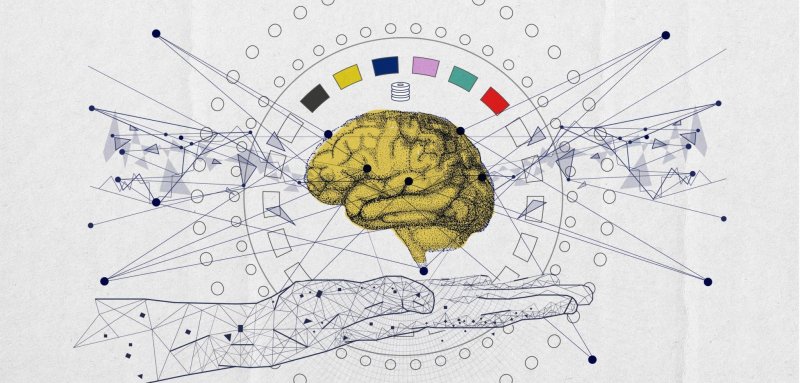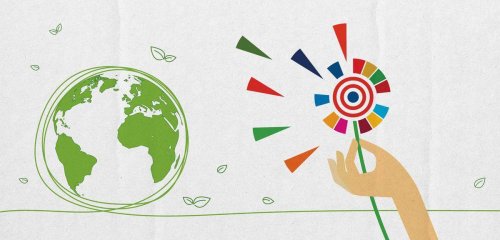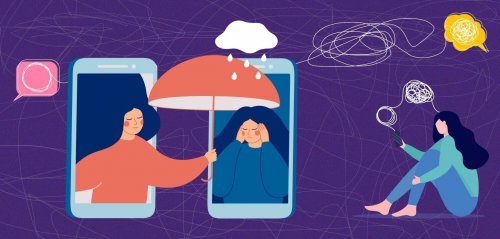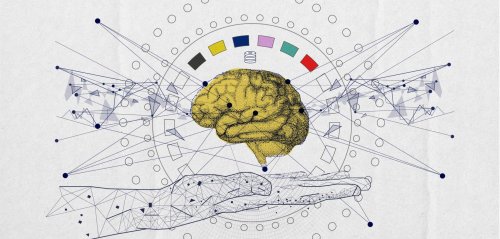“We cannot solve our problems with the same thinking we used to create them.” This is a golden rule set by the German physicist and intellectual, Albert Einstein. It can be used as a guide to solve the problems facing Arab communities, or at least to “mitigate” them.
To a certain extent, most of the problems facing the Arab region communities have existed for decades. Those who are meant to be solving them still fail to find solutions, which leads to exacerbation of current problems, and emergence of new ones.
Even so, policymakers still largely adopt the same old and ineffective way of thinking. Concepts of innovation and creativity are rarely involved in policy-making and problem-solving, many of which are cross-border.
Under these circumstances, people who think “outside the box” appear, here and there, offering creative solutions. However, instead of grabbing onto these ideas and initiatives and adopting them, we find that the concerned authorities, for the most part, ignore them.
“The only solution is through innovation,” says Tunisian Professor of Economics, Sahar Mechri to Raseef22, adding that “The previously adopted solutions have proven to be unsuccessful economically and socially. Problems must be reformulated and presented in a new way, and solving them must involve technology and innovation.”
She gives an example of unemployment in Arab society, a problem that can be described as “chronic”. In her opinion, “Innovative solutions must be provided at a time when technology controls our reality, which means technology must be integrated into new solutions,” calling on policymakers to empower the new generation and facilitate the implementation of its ideas and initiatives to come up with optimal solutions to problems.
Starting Point
In order to move towards integrating innovation and creativity into policy-making in the Arab region, it is necessary to create an environment that incubates the energies of innovative and creative youth. “The first dilemma that must be solved is the Arab environment and its circumstances, which must be rebuilt anew to accommodate young energies,” believes attorney Hussein El Achi, the Secretary-General of the Lebanese Party, “Minteshreen”, a political group that was formed after the October 2019 revolution
Lebanon is a striking example of the emigration of creative energies from a country, Achi tells Raseef22, “Although these human energies are the country’s primary and first resource.” This is attributed to “the absence of infrastructure and the difficult political conditions that led to the collapse of Lebanon, and resulted in the displacement of some of those energies abroad.”
In the Arab world, the situation is not much different. There are creative human energies that did not receive adequate support in their country, which prompted them to emigrate and innovate abroad, says Achi.
“We cannot solve our problems with the same thinking we used to create them.” This is a golden rule set by Albert Einstein, and it can be used as a guide to solve the problems facing Arab communities.
“What is the solution?” The Lebanese political activist answers, “In the near future, we must provide infrastructure and stability for young people. Our governments should work to get back the young people who left to work abroad, and provide them with appropriate conditions so they can offer their skills and knowledge, and remain within the elements of a creative environment.”
Obstructive Arab Legislations
Lebanese resigned MP and politician, Michel Moawad, defines Arab problems in three points: sustainable development, weak economy, and accumulated social problems. He believes that “Technology is an opportunity to compensate for the structural delay in building a sustainable economy, because the Arab world in general suffers from a delay that caused the failure to build sustainable productive economies.”
The biggest Arab dilemma, he adds to Raseef22, lies in the absence of a legal environment that incubates creativity, innovation and technology, calling for providing an incubating environment for youth and innovators by “supporting the educational environment in universities and schools, and creating a legal environment that supports new projects, which requires an investment environment to market these projects globally.”
Arab Golden Opportunity
The conversation with Mechri, Achi and Moawad came on the sidelines of their participation in a day of action organized by the German Friedrich Naumann Foundation for Freedom in the Jordanian capital, Amman, on October 26. It brought together policymakers and activists from different Arab countries with a group of innovative project owners at the conclusion of the iValues-2021 competition, a competition aimed at “Rethinking Politics in the MENA Region”, launched in cooperation with the German Institute for Innovation in Politics.
The Arab countries have a lot in common, which constitutes a suitable ground for regional cooperation to solve intertwined or overlapping problems, especially since the virtual world of the new economy has abolished borders and barriers, a common point agreed upon by policymakers and innovative youth.
The Arab countries have a lot in common, which constitutes a suitable ground for regional cooperation, especially since the virtual world of the new economy abolished borders and barriers, a common point agreed upon by policymakers and innovative youth.
Achi believes that the Arab commonalities are greater than the obstacles, “They share the same language, which is the most important factor”, and “it is necessary to have cross-border Arab networking, as several Arab countries face the same problems, in conjunction with the existence of innovative and creative projects that may intersect positively with the needs of societies. Innovation is an opportunity for the new generation to rise and solve the problems it faces.”
The Need for Regular Meetings
Bringing together perspectives between the region’s innovators and general policymakers, according to Yara Asmar, Regional Strategy Manager at FNF MENA, is an urgent and necessary need, as “the region is in dire need of an update in its approach of general policies and democratic action.”
Great challenges are faced at all levels, economic, intellectual, scientific, and human rights. Young people must propose forward scientific projects and solutions to problems, “away from narrow calculations,” according to Asmar, because “the region is in dire need of an update in its approach of general policies and democratic action.”
Asmar stresses the importance of policymakers’ cooperation with innovators and their openness to non-traditional solutions to problems, noting that “Innovative solutions can advance policymaking in the Middle East.”
Dirk Kunze, Regional Director at FNF MENA, stresses that “Innovation in itself is something that one cannot achieve on their own. Innovation requires a collective effort to bring about change, in the sense of understanding each other’s challenges and cooperating with one other.”
In turn, the South African specialist in leadership development, Merrick Grunewald, believes that the problem facing the Arab region lies in the lack of overall cooperation, especially between the youth and decision-makers.
She tell Raseef22 about the day of action hosted by the Jordanian capital, “We tried to fill this shortage, and we found a space of cooperation through which new ways can be found to solve problems and communicate between all parties, and build a relationship between decision-makers and innovative youth.”
“Today, people are more capable of communicating with each other and cooperating to solve the problems they face,” adds Grunewald, and this new reality presents an opportunity to collaborate on employing innovation to solve problems in the Arab region.
Raseef22 is a not for profit entity. Our focus is on quality journalism. Every contribution to the NasRaseef membership goes directly towards journalism production. We stand independent, not accepting corporate sponsorships, sponsored content or political funding.
Support our mission to keep Raseef22 available to all readers by clicking here!
Interested in writing with us? Check our pitch process here!







